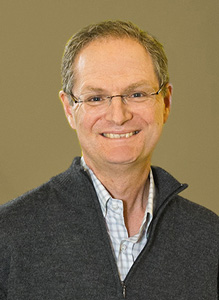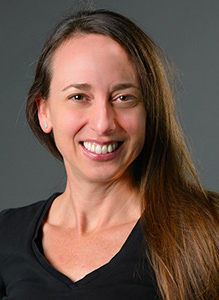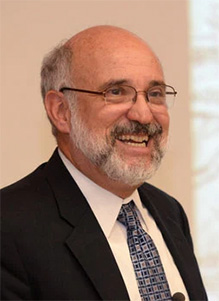Berkeley innovators named fellows of National Academy of Inventors
Three UC Berkeley faculty members and entrepreneurs have been named fellows of the National Academy of Inventors.
The three — chemist and nanotechnology pioneer Paul Alivisatos, bioengineer Amy Herr and chemical engineer Enrique Iglesia — were among 175 distinguished academic inventors named fellows in an announcement today by the academy. All three are also faculty scientists at Lawrence Berkeley National Laboratory, and Alivisatos is a former director of the lab.
Election as an NAI fellow is “a high professional distinction accorded to academic inventors who have demonstrated a prolific spirit of innovation in creating or facilitating outstanding inventions that have made a tangible impact on quality of life, economic development and the welfare of society,” according to the academy’s announcement.
“Berkeley is a great research university,” said Carol Mimura, assistant vice chancellor for intellectual property and industry research alliances. “It’s a well-known fact that teaching informs research and vice versa. Over the last few decades the university has seen that entrepreneurship is part of our mission and the entrepreneurship informs teaching and research as well.”

Alivisatos, UC Berkeley’s vice chancellor for research and a professor of chemistry is a pioneer in the field of nanotechnology and a founder of several high-tech startups based on semiconductor nanocrystals, which have become known as “quantum dots” because their size endows them with unique and useful quantum mechanical properties. One of these, Quantum Dot Corporation, commercialized his quantum dot patents for color-coded diagnosis and cell structure identification, while ThermoFisher Scientific makes more than 200 Q dot-based products worldwide.
He also founded Nanosys, which produces electroluminenscent nanocrystal displays for electronic gadgets, and Solexant, which licensed his inorganic nanocrystal photovoltaic technology for flexible solar cells, though now, as Siva Power, the company pursues a range of semiconductor nanofilm technologies.

Herr, the Lester John and Lynne Dewar Lloyd Distinguished Professor of Bioengineering, is renowned for innovative engineering analysis of complex biological systems, with an emphasis on analytical tools and diagnostics. As a prodigious teacher, mentor and advocate of engineering education and entrepreneurship, one-third of her graduate students have been involved in startup companies. She co-founded Zephyrus Biosciences, a venture-backed startup that is commercializing research tools to enable single-cell protein analysis and was recently acquired by Bio-Techne Corporation, while Correlia Biosystems, a diagnostics startup, spun out of her lab using her group’s technology.
Through UC Berkeley, Herr has filed for dozens of patents, while her work at Sandia Laboratory resulted in four additional U.S. patents, a highly unusual feat for a young researcher.

Iglesia, the Theodore Vermeulen Professor in Chemical Engineering and director of the Berkeley Catalysis Center, is an expert on catalysts — compounds, such as metals, that speed up or facilitate chemical reactions. His work involves synthesizing and characterizing inorganic solids that are useful as catalysts for producing fuels and petrochemicals and for improving the energy efficiency and sustainability of chemical processes.
His work at UC Berkeley and previously at the Corporate Research Labs of Exxon Research and Engineering has resulted in more than 40 patents, including a zeolite technology now being used as a catalyst in the oil and chemical industry. He has also won numerous teaching awards, and is former editor-in-chief of the Journal of Catalysis.
UC Berkeley is one of California’s major drivers of innovation and is one of five universities that founded two-thirds of all biotechnology companies in California. According to Mimura, campus research has spawned more than 200 startups that were founded to commercialize intellectual property rights under license. Of these startups, 66 employ 1,543 Californians and generate over $195 million in annual revenues. UC Berkeley licensees have commercialized more than 600 products, with dozens more in the pipeline. The campus has received $235 million in licensing revenue and over $850 million in industry-sponsored research.
Berkeley’s new fellows will be inducted on April 6, 2017, as part of the Sixth Annual Conference of the National Academy of Inventors at the John F. Kennedy Presidential Library and Museum in Boston, where they will be presented with a special trophy, medal and rosette pin in honor of their outstanding accomplishments.
NAI fellows are named inventors on U.S. patents and were nominated by their peers for outstanding contributions to innovation in areas such as patents and licensing, innovative discovery and technology, significant impact on society and support and enhancement of innovation.
The National Academy of Inventors, founded in 2010 to recognize and encourage inventors with patents issued from the U.S. Patent and Trademark Office, is a nonprofit organization with over 3,000 individual inventor members and fellows from U.S. and international universities and governmental and nonprofit research institutions.
MORE INFO
- NAI announcement
- Berkeley entrepreneurial success stories
- Outgoing Berkeley Lab director to take research helm at UC Berkeley (Jan. 21, 2016)
